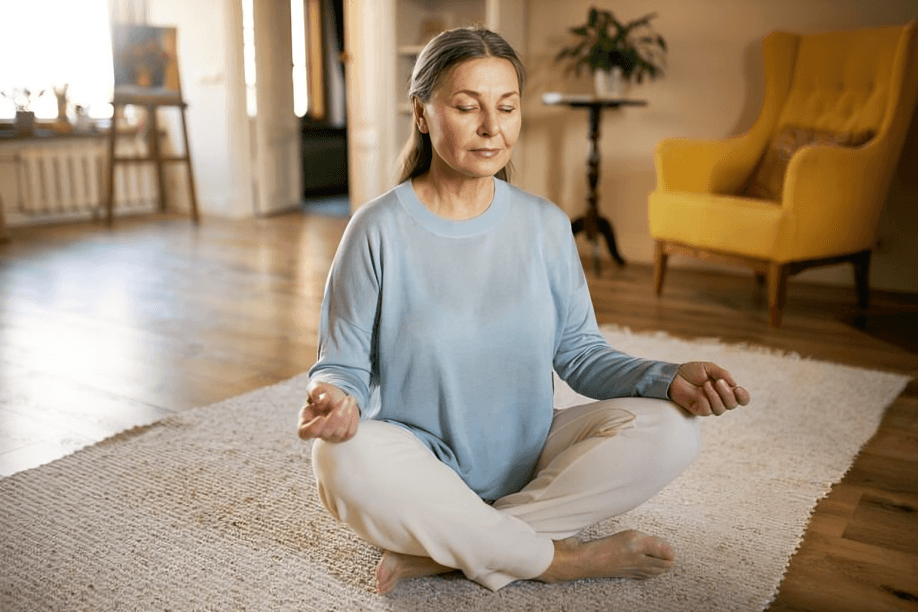
“
Recognizing signs of depression in older adults is essential because depression often goes unnoticed or is mistaken for normal aging. Many seniors face emotional, physical, and social challenges that mask depressive symptoms. Understanding how depression presents uniquely in older adults helps families and caregivers provide timely care and improve quality of life.1
1
”
Depression in older adults is often overlooked because symptoms may appear as physical health problems rather than emotional distress, making accurate recognition crucial for early intervention. 1
Meditation encourages mindfulness in seniors by training the brain to focus on the present moment, which improves attention and memory, helping slow down cognitive decline typically seen with aging. 2

Mindfulness meditation improves sleep quality for seniors, enabling deeper, more restorative rest that supports brain repair and physical healing processes essential for healthy aging.
Meditation activates the parasympathetic nervous system in seniors, which induces a state of calm and relaxation, reducing chronic pain perception and improving overall pain management. 3
Seniors who practice mindfulness regularly show increased emotional regulation and self-awareness, which helps reduce feelings of loneliness, depression, and social isolation common in older populations. 4
Research indicates that meditation boosts immune system function in seniors by reducing stress-induced inflammation, which may enhance resistance to common illnesses and support health. 5
Mindfulness helps seniors better cope with chronic conditions by fostering a mindset of acceptance and reducing the emotional burden often associated with illness. 6
Meditation supports neuroplasticity, allowing the aging brain to form new neural connections, which improves learning ability, memory retention, and mental flexibility even in later years. 7
Mindfulness practice enhances seniors’ self-compassion and reduces self-critical thoughts, which often increase due to aging-related stereotypes, thereby improving their overall emotional well-being. 8

Regular meditation reduces the frequency and intensity of migraines in seniors by calming nervous system activity and lowering stress triggers.
Seniors engaged in mindfulness report greater feelings of gratitude and life satisfaction, contributing to improved mental health and enhanced psychological resilience. 9
Mindfulness-based stress reduction programs tailored for seniors have demonstrated significant decreases in symptoms of anxiety and depression, often outperforming traditional treatments. 10
Meditation lowers cortisol, a hormone linked to stress, in seniors. This reduction helps prevent inflammation and supports healthier brain aging by protecting neurons. 11
By shifting attention away from pain, meditation helps seniors reduce their subjective experience of discomfort, offering an effective non-drug method to manage chronic pain. 12
Meditation improves cardiovascular health in seniors by increasing heart rate variability, which indicates a balanced autonomic nervous system response to stress and relaxation. 13

Mindfulness encourages better breathing patterns in seniors, enhancing respiratory function and endurance, which are crucial for maintaining physical activity and independence.
Practicing mindfulness improves seniors’ empathy and communication skills, strengthening social bonds that combat loneliness and promote emotional support. 14
Seniors who meditate regularly display improved emotional resilience, enabling them to better handle mood fluctuations and stressors common in later life. 15
Regular mindfulness practice increases serotonin levels, the brain’s mood-regulating chemical, leading to improved happiness and reduced symptoms of depression. 16
Philosophers and scientists highlight that meditation cultivates inner peace and wisdom for seniors, providing meaningful purpose and contentment in their later years. 17


